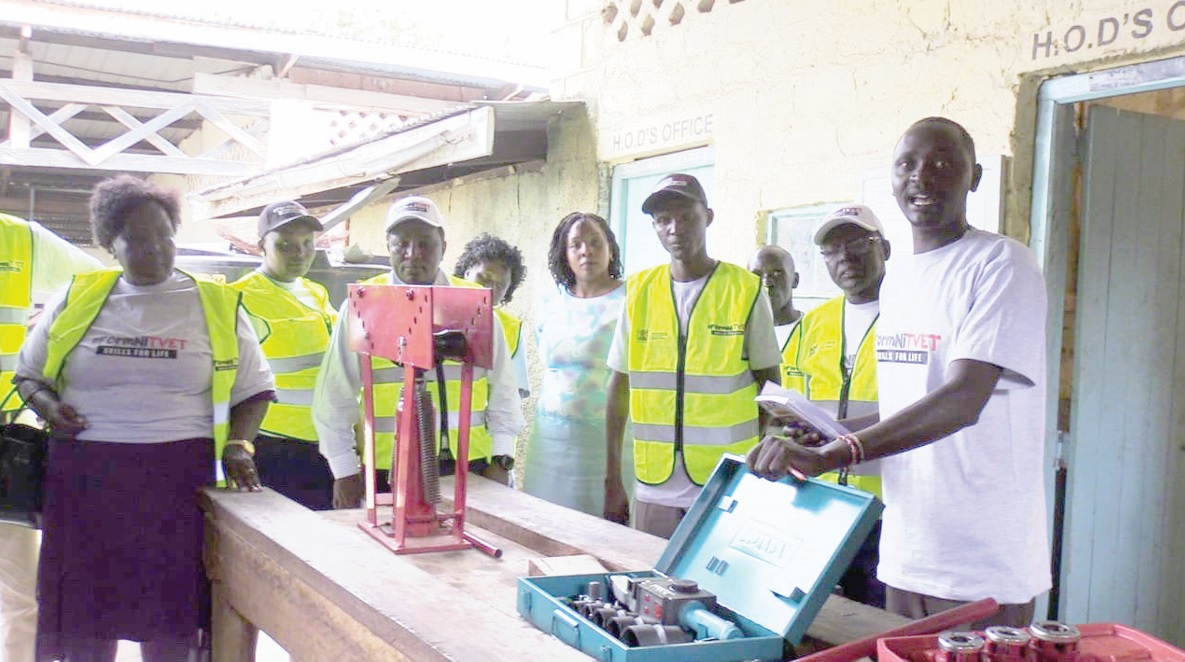How TVETs contribute to war against banditry in North Rift

The government’s efforts to empower the youth to join Technical, Vocational Education and Training (TVETs) is paying off in the banditry prone counties in the North Rift with many pastoralists embracing the initiative.
Initially, many residents held the notion that TVETs were a preserve for people who had failed in academics.
But many youths in the region who previously engaged in retrogressive cultural practices like cattle rustling are now enrolling in the TVETs to acquire entrepreneurship and life skills.
In West Pokot and Baringo counties for instance, technical institutes are turning out to be a solution to banditry which has over the years led to loss of many lives, livelihoods and displacement of thousands.
Sandra Chepkemoi, a student of food and beverage at Kapenguria Vocational Training Centre in West Pokot County said her training will enable her to be self-employed.
“The training has motivated many of us and we can start our own businesses. We will use our hands to earn a living instead of waiting for white collar jobs,” said Chepkemoi.
She said technical institutes will help many youths to change and engage in meaningful development.
West Pokot County Executive in charge of Education Rebecca Kide challenged the youth in the region to join TVETs to gain skills that enable them to access the job market or to be self-employed.
“We now have an Ortum Cement Factory that needs skills for work. When the Muruny Water Project came, our people complained that they had been sidelined in employment but there was nobody with the skills that were required,” said Kide.
“The labour space is shifting from white collar jobs to skills and people with technical and vocational training have an upper hand to secure job opportunities in the formal and informal sectors,” she added.
According to the official, the high rate of unemployment is an issue which the county government is addressing, adding that every young person should acquire necessary skills that will enable them to gain employment or start a businesses.
“I encourage the youth to enter into entrepreneurship to create their own businesses as it will help to address joblessness in the country,’’ said Kide.
She called on the youth to go for skills training to fill the vacuum that the county is having in terms of expertise. She urged the youth to go for a variety of skills.
Kide noted that the government is funding TVET trainees through HELB loans and urged those facing fees challenges not to shy away from enrolling for the programme.
She urged Members of the County Assembly (MCAs) in the region to ensure every ward has a TVET institution.
West Pokot County TVET director Samuel Lemale said in 2019, enrollment in six TVET centres in Kapenguria, Chepareria, Ortum, Sina, Sigor and Kodich was only 517 students, but the number had since increased to 2,260.
“We have built classrooms and dormitories. Students are learning courses such as electrical and electronics, carpentry and joinery, computation, building and construction,” said Lemale.
Job market
Beria Wawira, a Program officer at Zizi Afrique Foundation, said they want to change people’s attitude that TVETs are meant for people who performed poorly in school.
“The enrollment is encouraging. We are rebranding the narrative and our aim is to change the perception of youths about joining the TVET programmes. People need to enroll in TVETs so that they are able to gain skills for life and be fully skilled for work,” said Wawira.
The official said more than 800,000 people get into the job market each year, but there is still a low percentage of people getting jobs, with 27 per cent of the young people in unemployment because of skills mismanagement by the employers in the country.
According to the Kenya Youth Survey 2016, unemployment is the top concern for the youth at 63 per cent with the number of young people joining the job market estimated to be about one million annually.








